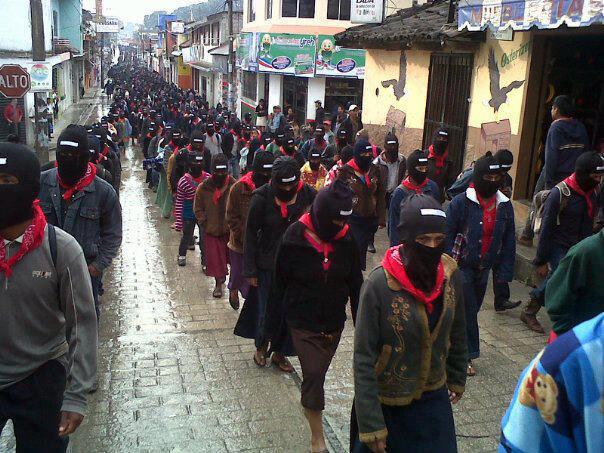 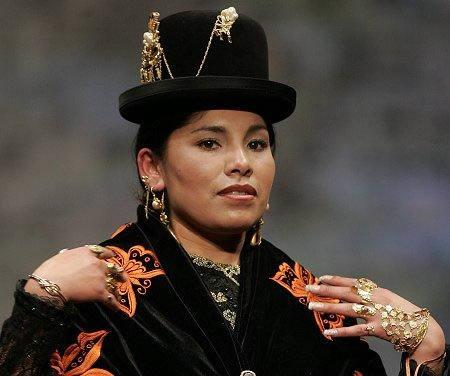 Soc 338: The Indigenous Experience in the Americas Winter
2013
Instructor: Dr. Gonzalo F. Santos Class: 10:00 am - 11:25 am, MWF Room: DDH-104K |
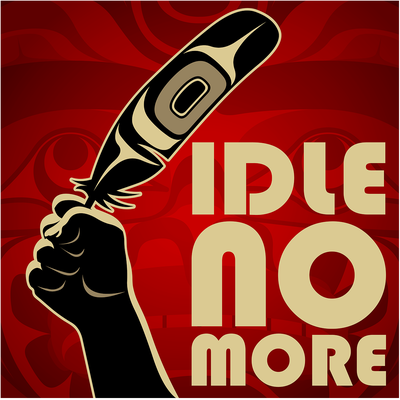 Dr.
Santos' Office:
DDH-AA205 Dr.
Santos' Office:
DDH-AA205 Office Hours: 11:30 am - 12:30 pm MWF Phone: 664-2191 Teaching Assistant: Ms. Eva Rafik T.A. Office: DDH-AA204, Phone: 661 654-2718 T.A. Office Hours: 11:30am-12:00pm, Fridays |
Textbooks:
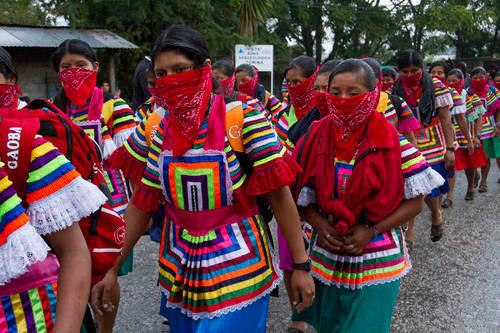 * David E. Wilkins, 2011. American Indian Politics and the
American Political System. 3rd. Edition. New York: Rowman &
Littlefield Publishers, Inc.. ISBN: 9781442203884.
* David E. Wilkins, 2011. American Indian Politics and the
American Political System. 3rd. Edition. New York: Rowman &
Littlefield Publishers, Inc.. ISBN: 9781442203884.* Lynn Stephen, 2007. Transborder Lives. Indigenous Oaxacans in Mexico, California, and Oregon. Durham: Duke University Press. ISBN: 9780822339908.
* Web Readings. Access codes will be given in class.
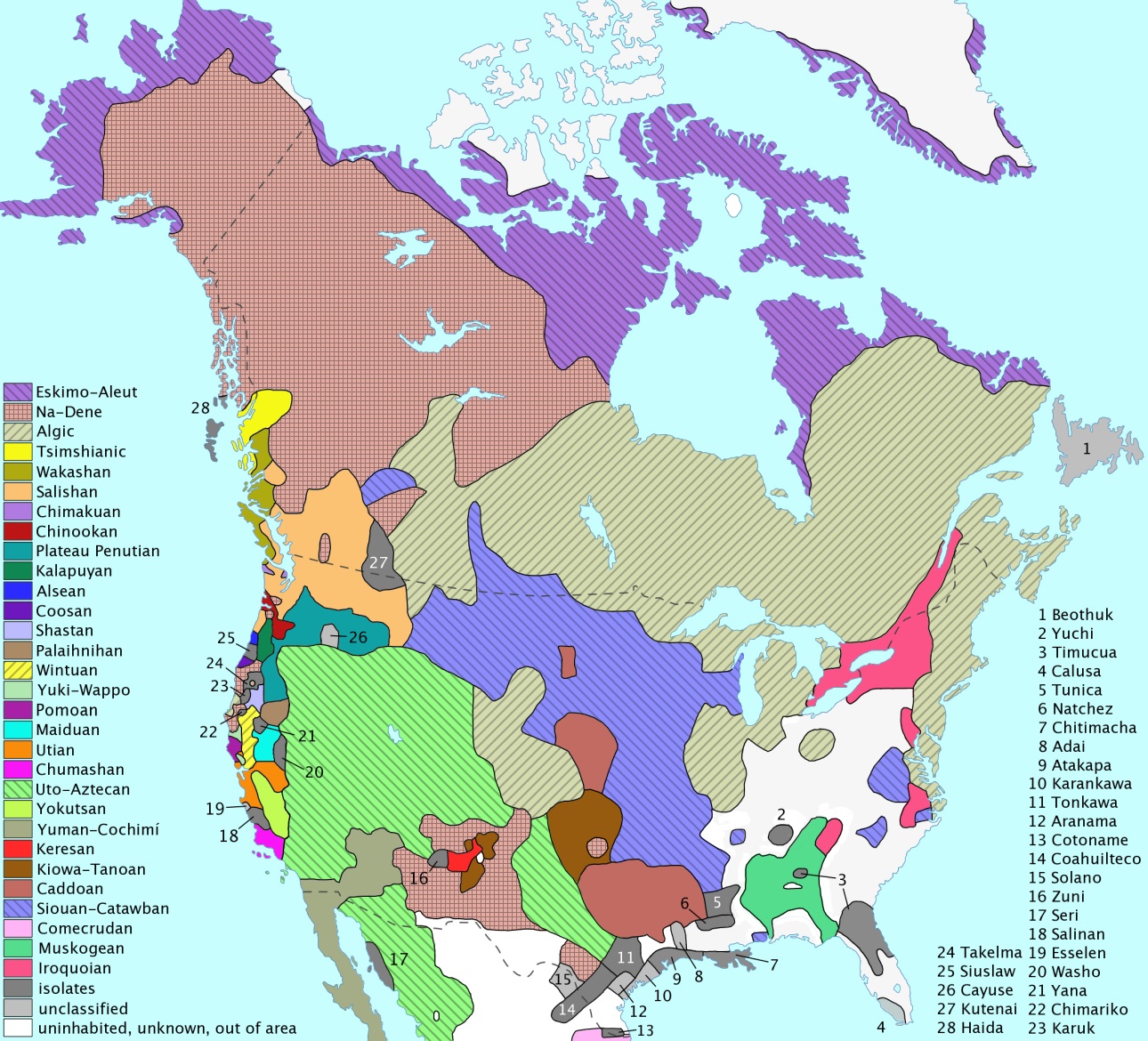 Course
Content:
Course
Content:This course introduces students to the
socioeconomic & political conditions & experiences of modern
indigenous peoples within the
United States, Latin America, and as North American immigrants.
We first focus on the rich and complex
Native American
experiences within the United States over the course of the past two
centuries,
with emphasis on the indigenous movements &
rebellions of the 1930s and 1960s, the federal policies and programs
that resulted from them, the partial recovery of Native American
sovereignty and re-invigorated
indigenous identity, and the socioeconomic
and political conditions today. We then explore the re-emergence, rich
diversity, and increasing centrality of indigenous movements in many
countries of Latin America, as a new aspect of the continent's long
quest for political sovereignty, social justice, economic &
cultural
self-determination, and development. Finally, we take a look at the
phenomenon of indigenous migration in North America - taking as a case
study Mixteco/Zapoteco migration from
the Mexican State of Oaxaca to California & Oregon - as an
increasingly salient aspect of globalization from
below, revealing the contours of transnational communities, and how
they
cope & reweave their social fabric today.
|
Gender Race & Ethnicity
Mission, Goals, & Objectives
Mission of the GRE Requirement: Students will develop an awareness, appreciation, and recognition of the social constructions of gender, race, and ethnicity in order to understand the diversity of human experience and values, particularly those contributions to knowledge and civilization made by members of historically under-represented groups. Fundamental to this requirement is the concept of cultural pluralism, which encompasses ethnic, cross-cultural, and intercultural studies as well as studies of the relationship(s) between dominant and non-dominant social groups. Goal 1. The course should have, as its principal focus, some aspect of the lives, roles, contributions, perspectives, and experiences of the particular group(s) discussed whether they be women or more specific ethnic and racial groups. Discussion of these groups needs to be set within a broadly defined context, one that might not be limited by national boundaries. Objective a. Students
taking the
course should be able to demonstrate an understanding of the broad
processes of multicultural/global issues related to issues of gender,
race, and/or ethnicity.
Goal 2. Relevant
scholarship on the course topic, in historical context, should be an
important part of course readings and discussions. Attention to past
and present theoretical approaches should be incorporated into the
course readings and discussions.Objective b. Students taking the course should be able to compare and contrast issues of gender, race, and/or ethnicity across different cultures. Objective a. Students
taking the
course should be able to compare past and present discipline-specific
theories related to gender, race and/or ethnicity.
Goal 3. The course
should
incorporate viewpoints of individuals whose lives may differ in terms
of gender, race, and ethnicity.Objective a. Students
taking the
course should be able to compare and contrast viewpoints of individuals
whose lives differ in terms of gender, race, and/or ethnicity.
Goal 4. The course
should
identify the structure and dynamics of domination and subordination.
The course should include critical analyzes of how cultural and
societal assumptions about gender, race, and ethnicity function in
individuals' lives.Objective a. Students
taking the
course should be able to identify the structure and dynamics of
domination and subordination in gender, race and/or
ethnicity.
Goal 5. The course
should
include the use of pedagogical techniques that encourage student
participation, to enable them to be active learners and critical
thinkers, and to examine their personal values.Objective b. Students taking the course should be able to analyze the ways in which cultural and societal assumptions about gender, race and/or ethnicity function in individual’s lives. Objective a. Students
taking the
course should be able to demonstrate critical thinking skills about
issues of gender, race and/or
ethnicity.
Objective b. Students taking the course should be able to identify how their personal values relate to and have changed regarding issues of gender, race and/or ethnicity. |
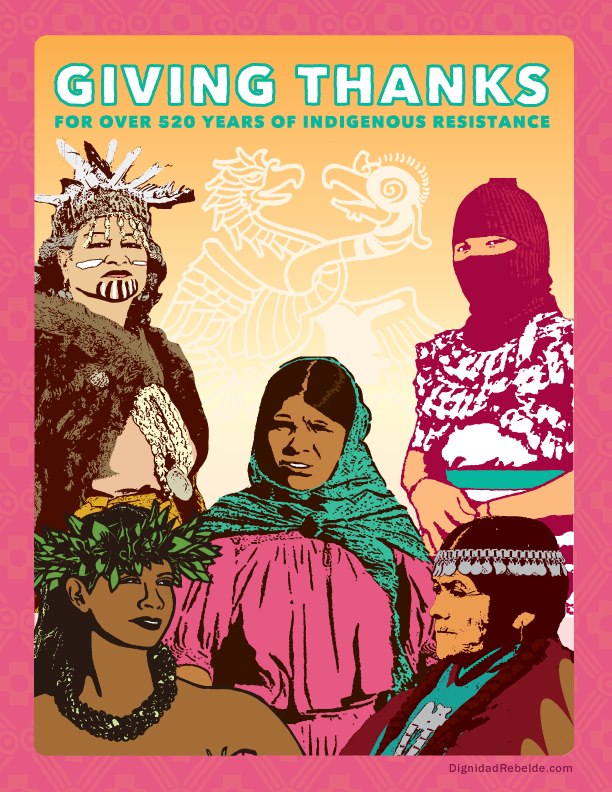 Course Structure:
Course Structure:The course has a hybrid lecture-seminar format: Students in groups of four will take turns introducing the assigned readings for each class session, followed by Dr. Santos lectures and class discussion. Sometimes there will be a video presentation instead. Attendance is, of course, mandatory, and all students must be punctual and come prepared to discuss the assigned readings. (Absences, tardiness, leaving early will be penalized).
Besides these classroom activities, students will produce, also in
groups, two research projects on relevant topics related to the course:
the
first one must be on U.S. Native Americans (e.g., their movements,
economic
conditions, political issues, or cultural challenges, as a whole or
particular nations or tribes, etc.); and the second one must be on an
indigenous people, issue, or movement in present-day Latin America
& the Caribbean, or Canada. In both cases, the time and scale of
the topic is left for the students to determine.
Class
Presentations: On a rotational basis for most of the
classes, groups of 4 students each will divide up aspects of the
assigned readings, present and summarize their parts, and
critique them. To do so, each presenter will each prepare his/her own PowerPoint
presentation. When it's a group's turn
to present, it should show up early
to upload & test the presentations.
Each presentation will be evaluated based on: (a) the
accuracy and quality
of the summaries, (b) the analytical
strength of the critical
assessments,
(c) the quality and pertinence of a final question posed
at the end of each individual presentation, and (d) the style and
quality of the delivery
(oral & visual).
Reading Assessments: To ensure that everybody come to
class fully prepared to discuss the assigned readings, students who are
not
presenting must bring to class a written "reading assessment" per
reading (chapter) assigned. The reading assessments must be turned in
to Dr. Santos at the beginning of each class session. No late reading assessments will be
accepted, unless the student has a pre-authorized absence cleared with
Dr.
Santos. DO NOT SEND YOUR READING ASSESSMENTS BY EMAIL, they will not be accepted.
Note: Students presenting on a given day do not need to submit any reading assessment that day.
Research Papers: Students will collaborate in their groups to do two research projects. Students will be asked to chose two pertinent historical/sociological topics relating to the contemporary indigenous experiences in the United States, first, and Latin America, the Caribbean, or Canada, second. The first paper (U.S.) is due on February 20 prior to class in Blackboard, and the second paper is due by noon on March 20. The students must obtain approval from Dr. Santos for their group research project and their individual paper sub-topics. Each research paper should be written and submitted in Word -- as an attachment in Blackboard -- and should be 6 to 8 pages in length (apart from the bibliography and any appendix), double-spaced, font 12, with one-inch margins. Each paper should have a title, a clearly stated topic, appropriate and relevant citations from pertinent scholarly literature on that topic, robust analysis, findings & data, and a conclusion section, plus a bibliography of no less that five printed scholarly sources (journals and books) and perhaps a few other sources (web sites, think tanks, etc.). Papers will be graded for length; clarity of language and paper organization; quality & accuracy of analysis & critical thinking; quality & contextual relevance of actual quotes; number & quality of bibliographical sources; and quality & relevance of data presented.
You must visit Dr. Santos or Ms. Rafik at their offices during their office hours posted above to discuss and get approval for your project topics and paper sub-topics.To gain access to the CSUB's BlackBoard go to: https://bb.csub.edu/ . Login to Blackboard using your "myCSUB" Net ID and Password. For help, contact the Student Help Desk at (661) 654-2307.
Extra
Points: Perfect attendance - no
unexcused absences, tardiness, or leaving early -- will be
rewarded with 3 extra points at the end of the course. Another way to
get extra
credit is to attend
those campus or public events Dr. Santos announces in class and write
afterward a
two-page critical assessment report on them. Other ways are these:
(A) DEVELOP YOUR RESEARCH SKILL WHILE YOU DO YOUR RESEARCH PAPERS: To develop the students' research skills, there are two general studies courses that students are strongly encouraged to take, and anyone that does take either or both courses will receive extra credit in this course: These courses will enable students to develop the necessary competencies to navigate their way around the complexities of researching print and electronic sources. For further information contact librarian Christy Gavin (email: <cgavin@csub.edu>, phone: 661-664-3237).
Introduces students to effective research techniques using Library electronic resources. Emphasis will be placed upon skills necessary for the identification, retrieval, and evaluation of information for general and specific topics. Students will acquire the competencies necessary to develop an effective search strategy and find research materials, including references to journal articles, full text articles in electronic format, government publications, books, and Internet resources.
GST 153 - Research on the Internet (2 units)
Introduces students to the information resources available on the Internet for research purposes Students will develop general knowledge of the Internet, navigation skills, effective search strategy skills, familiarity with Internet finding tools, evaluation methodologies and other Internet research skills.
______________________________________________________________
Plagiarism: To prevent students from wittingly or unwittingly engaging in plagiarism, Dr. Santos strongly recommends students to carefully read and abide by the document CSUB Classifications of Plagiarism found at: http://www.csub.edu/tlc/options/resources/turn_it_in_help_page.shtml. Anyone found guilty of engaging in plagiarism will automatically fail the course and be reported to the Office of Student Discipline and Judicial Affairs for further disciplinary action.
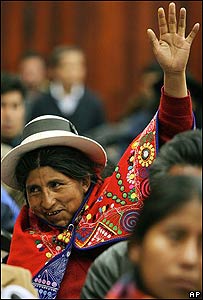 Grading: Each class presentation is worth up to 10
points (20 total). Each research papers are worth up to 25 points (50
total).
The reading assessments as a whole are worth the remaining 30 points.
The
extra credit students may
receive for
taking the suggested General Studies/Humanities courses will depend on
their final
grade in those courses, and may range from zero to 6 points (2 pts. per
course). Other extra credit activities may occur. Perfect attendance
will also be rewarded with 3 extra
points; unexcused absences and tardiness/leaving early will be
penalized with one
point off per instance. The final
letter grade will be assigned, on a scale of 0 to 100, as follows:
Grading: Each class presentation is worth up to 10
points (20 total). Each research papers are worth up to 25 points (50
total).
The reading assessments as a whole are worth the remaining 30 points.
The
extra credit students may
receive for
taking the suggested General Studies/Humanities courses will depend on
their final
grade in those courses, and may range from zero to 6 points (2 pts. per
course). Other extra credit activities may occur. Perfect attendance
will also be rewarded with 3 extra
points; unexcused absences and tardiness/leaving early will be
penalized with one
point off per instance. The final
letter grade will be assigned, on a scale of 0 to 100, as follows:
| 94-100 = A | 87-89 = B+ | 77-79 = C+ | 65-69 = D |
| 90-93 = A- | 84-86 = B | 74-76 = C | < 65 = F |
| 80-83 = B- | 70-73 = C- |
Office Hours & E-Mail to Dr. Santos & Ms. Eva Rafik
Dr. Santos will generally be available at his office after class - see his posted office hours above. Students are encouraged to come see him or to call him (664-2191) during these times. For emails, please be brief, clearly identify your business in the subject heading, and make sure to sign off with your full name. The T.A., Ms. Eva Rafik, will be available to meet with you at her office, DDH-AA204, after class on Fridays, or by appointment. She will be in charge of evaluating the reading assessments, will attend Friday classes, and handle most email traffic. If you wish to set up an appointment, you should leave her a phone number where she can reach you.
Schedule
of Assigned
Readings, Videos & Group Presentations
|
|
|
|
Friday |
January 7, 9, 11 |
Introduction to the class |
Presenter: Dr. Santos |
Video Presentation Winds of Change |
| 1
|
Wilkins Group: __1
1. A Tour of Indian Peoples and Indian Lands |
2. Indian Peoples Are Nations, Not Minorities |
Wilkins Group: __3 3. Indigenous Governments: Past, Present, and Future |
| 2
|
|
4. Actors in Indian Politics |
Wilkins Group: __5 5. A History of Federal Indian Policy |
| 3
|
6. Tribal Political Economy |
7. Indian Political Participation |
Wilkins Group: __8 8. Indian Interest Group Activity and Activism |
| 4
|
Wilkins Group: __9 9. Indians, Images, and the Media |
Wilkins Group: __10 10. Indigenous Nations and the American Political System |
Video Presentation A Place Called Chiapas |
| 5
|
Web Reading: Dr. Santos The Chiapas uprising of 1994: Historical antecedents Global capitalism and the peasantry in Mexico |
Web Reading: Group: __11 Indigenismo, indianismo and ‘ethnic citizenship’ in Chiapas Indigenous peasant women in Chiapas |
Web Reading: Group: __12 Marcos: Interviewed by Gabriel Garcia Marquez Marcos: Interview by Regis Debray |
| 6
|
Web Reading: Group: __1 Echoes of Revolution in Bolivia Land Tenure in Bolivia |
Web Reading: Group: __2 Bolivia’s New Water Wars Media and Democracy in Bolivia |
Web Reading: Group: __3 Who's Defending Democracy in Bolivia? Bolivia’s TIPNIS Conflict |
| 7
|
Web Reading: Group: __4 The Green vs. the Brown Amazon Brazil's Approach to Affirmative Action and Race Brazil’s Native Peoples and the Belo Monte Dam |
Web Reading: Group: __5 Colombia: The Minga of Resistance I Colombia: The Minga of Resistance II Colombia: The Nasa & Communication for Life |
Web Reading: Group: __6 Latin America: a new cycle of social struggles A New Indigenous-Left in Ecuador? El buen vivir: A Peruvian Indigenous Leader |
| 8
|
Stephen Group: __7 1. Approaches to Transborder Lives 2. Transborder Communities in Political and Historical Context: Views from Oaxaca. |
Stephen Group: __8 3. Mexicans in California and Oregon 4. Transborder Labor Lives: Harvesting, Housecleaning, Gardening, and Childcare. |
Stephen Group: __9 5. Surveillance and Invisibility in the Lives of Indigenous Farmworkers in Oregon. 6. Women's Transborder Lives: Gender Relations in Work and Families. |
| 9
|
Stephen Group: __10 7. Navigating the Borders of Racial and Ethnic Hierarchies. |
Stephen Group: __11 8. Grassroots Organizing in Transborder Lives |
Stephen Group: __12 9. and Conclusions: Transborder Ethnic Identity Construction in Life and on the Net |
| 10 March 18
|
Video Presentation Oaxacalifornia |
Second Research Paper due by noon on Wednesday, March 20 in Blackboard |
|
My GROUP Research Topic # 1 is:___________________________________________________
My Own Research Subtopic # 1 is:_________________________________________________
My GROUP Research Topic # 2 is:___________________________________________________
My Own Research Subtopic # 2 is:_________________________________________________
My GROUP members are:
___Name______________________Phone_____________________Email______________________
1._________________________________________________________________________________
2._________________________________________________________________________________
3._________________________________________________________________________________